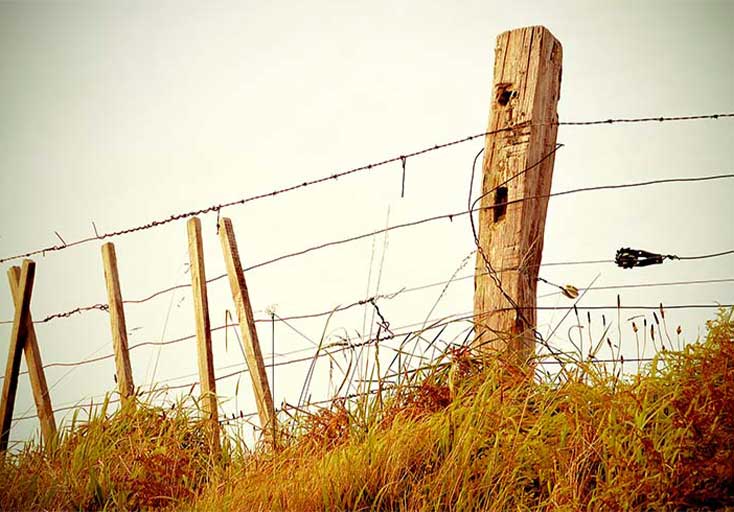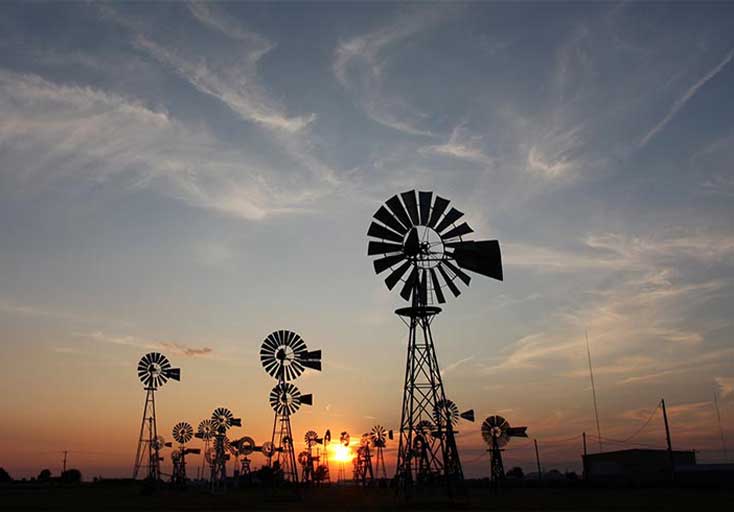Here is a checklist of useful questions to pose to a seller or seller’s representative when looking at a specific piece of land or property.
We hope this helps you get the full lay of the land, so to speak, but please note that this checklist is intended as a general guide rather than exhaustive outline. Every piece of land differs, just as real-estate transactions will vary based on different locations, property uses and individual buyer and seller circumstances. Please consult with a qualified land professional to assure you are getting the right information and advice for your land or property purchase.
Read More: What You Need to Know When Buying Raw Land Online

A tranquil forest path might lead to your dream country escape. But what does it look like under a full winter snowfall, or will it support heavy equipment for building a new homesite? These and other property-access questions are important to understand when buying land.
- What are the access rights on the property? For example, does the land offer legal access to a public road or is access provided via an existing deeded easement?
- Is this land or property served by existing utilities like electricity, sewage, water? Are any wells or septic systems installed on the property?
- Has the land been surveyed recently? Are the boundary lines painted or marked?
- Who are the adjoining neighbors? Are you aware of any current property line disputes with neighboring landowners?
- Do any mineral rights such as for timber, water or gas convey with the sale of this property?
- Are there existing easements in place on the property, including for conservation, utilities, access or adjoining owners?
- Are there any known environmental issues with the property? Have the current owners received notice from any governmental entities about future assessments that would affect this property?
- How is the property zoned? What are permitted uses or special exceptions for this piece of land? (This is also a question that can be asked of the local government or municipality where the property is located.)
- Is the property governed under the terms of a Homeowners Association? If so, what restrictions apply to future development of this land of property?
- Are you aware of any development proposal for any adjoining land or properties?
- Are there existing tenant or lease obligations to others on the property?
- What are annual property tax obligations for the land or property?
- Are there any tax exemptions as a result of the investment in the property? (such as agricultural, horticultural, or timber exemptions)
- Why is the property owner selling this particular property? (Please note, the seller or seller’s representative is not required to disclose this information, but it doesn’t hurt to ask.)
- Is the seller offering financing on the property?
- How soon can the seller close on the transaction?
- Does the property include any water features such as lakes, rivers, springs or ponds? What about internal access routes such as fire roads, trails or pathways?
- Where are the nearest public access lakes or waterways? What are the closest public lands (i.e. state or national forest, state or national park, BLM land)?
- Do any property improvements not convey with the sale (e.g. fencing, outbuildings, gates)?
- Will my purchase of this land or property include a fee simple General Warranty deed?
- Am I able to obtain clear title to the property with title insurance?
- What is the quality and value of timber on the property (e.g. types of timber, age of trees, planted or natural species)? Where are the nearest timber mills and outlets? Is any of the current timber stock sellable?
The above questions should help you paint the picture of a property’s existing state as well as future potential. In addition, of course, there will be many questions that may relate to various state and local conditions and regulations that should be fully discussed with the seller.
More Useful Resources
- 10 Essential Tips for Buying Rural Property
- Essential Tips for Getting Your First Farm or Ranch Loan
- How to Buy Raw Land in a Digital World
Tell us in the comments section if you think we have missed anything in our above checklist!

A simple fence line can denote the property boundaries, but what does it tell you about the neighboring landowners, the quality of the terrain, or unseen environmental concerns? Be sure to ask about boundaries, easements and other important land considerations before you buy.

Ensure you have a full understanding about all the mineral rights as they relate to land for sale, which could include everything to above-ground wind, water and timber rights as well as subsurface rights for everything from natural gas to coal to copper and zinc.
